CHAPTER IV.
您可以在百度里搜索“Pierre: Or, The Ambiguities 艾草文学(www.321553.xyz)”查找最新章节!
CHAPTER IV.
PIERRE plunged deep into the woods, and paused not for several miles; paused not till he came to a remarkable stone, or rather, smoothed mass of rock, huge as a barn, which, wholly isolated horizontally, was yet sweepingly overarched by beech-trees and chestnuts.
It was shaped something like a lengthened egg, but flattened more; and, at the ends, pointed more; and yet not pointed, but irregularly wedge-shaped. Somewhere near the middle of its under side, there was a lateral ridge; and an obscure point of this ridge rested on a second lengthwise-sharpened rock, slightly protruding from the ground. Beside that one obscure and minute point of contact, the whole enormous and most ponderous mass touched not another object in the wide terraqueous world. It was a breathless thing to see. One broad haunched end hovered within an inch of the soil, all along to the point of teetering contact; but yet touched not the soil. Many feet from that—beneath one part of the opposite end, which was all seamed and half-riven—the vacancy was considerably larger, so as to make it not only possible, but convenient to admit a crawling man; yet no mortal being had ever been known to have the intrepid heart to crawl there.
It might well have been the wonder of all the country round. But strange to tell, though hundreds of cottage hearthstones—where, of long winter-evenings, both old men smoked their pipes and young men shelled their corn—surrounded it, at no very remote distance, yet had the youthful Pierre been the first known publishing discoverer of this stone, which he had thereupon fancifully christened the Memnon Stone. Possibly, the reason why this singular object had so long remained unblazoned to the world, was not so much because it had never before been lighted on—though indeed, both belted and topped by the dense deep luxuriance of the aboriginal forest, it lay like Captain Kidd's sunken hull in the gorge of the river Hudson's Highlands,—its crown being full eight fathoms under high-foliage mark during the great spring-tide of foliage;—and besides this, the cottagers had no special motive for visiting its more immediate vicinity at all; their timber and fuel being obtained from more accessible woodlands—as because, even, if any of the simple people should have chanced to have beheld it, they, in their hoodwinked unappreciativeness, would not have accounted it any very marvelous sight, and therefore, would never have thought it worth their while to publish it abroad. So that in real truth, they might have seen it, and yet afterward have forgotten so inconsiderable a circumstance. In short, this wondrous Memnon Stone could be no Memnon Stone to them; nothing but a huge stumbling-block, deeply to be regretted as a vast prospective obstacle in the way of running a handy little cross-road through that wild part of the Manor.
Now one day while reclining near its flank, and intently eying it, and thinking how surprising it was, that in so long-settled a country he should have been the first discerning and appreciative person to light upon such a great natural curiosity, Pierre happened to brush aside several successive layers of old, gray-haired, close cropped, nappy moss, and beneath, to his no small amazement, he saw rudely hammered in the rock some half-obliterate initials—"S. y W." Then he knew, that ignorant of the stone, as all the simple country round might immemorially have been, yet was not himself the only human being who had discovered that marvelous impending spectacle: but long and long ago, in quite another age, the stone had been beheld, and its wonderfulness fully appreciated—as the painstaking initials seemed to testify—by some departed man, who, were he now alive, might possibly wag a beard old as the most venerable oak of centuries' growth. But who,—who in Methuselah's name,—who might have been this "S. y W?" Pierre pondered long, but could not possibly imagine; for the initials, in their antiqueness, seemed to point to some period before the era of Columbus' discovery of the hemisphere. Happening in the end to mention the strange matter of these initials to a white-haired old gentleman, his city kinsman, who, after a long and richly varied, but unfortunate life, had at last found great solace in the Old Testament, which he was continually studying with ever-increasing admiration; this white-haired old kinsman, after having learnt all the particulars about the stone—its bulk, its height, the precise angle of its critical impendings, and all that,—and then, after much prolonged cogitation upon it, and several long-drawn sighs, and aged looks of hoar significance, and reading certain verses in Ecclesiastes; after all these tedious preliminaries, this not-at-all-to-be-hurried white-haired old kinsman, had laid his tremulous hand upon Pierre's firm young shoulder, and slowly whispered—"Boy; 'tis Solomon the Wise." Pierre could not repress a merry laugh at this; wonderfully diverted by what seemed to him so queer and crotchety a conceit; which he imputed to the alledged dotage of his venerable kinsman, who he well knew had once maintained, that the old Scriptural Ophir was somewhere on our northern sea-coast; so no wonder the old gentleman should fancy that King Solomon might have taken a trip—as a sort of amateur supercargo—of some Tyre or Sidon gold-ship across the water, and happened to light on the Memnon Stone, while rambling about with bow and quiver shooting partridges.
But merriment was by no means Pierre's usual mood when thinking of this stone; much less when seated in the woods, he, in the profound significance of that deep forest silence, viewed its marvelous impendings. A flitting conceit had often crossed him, that he would like nothing better for a head-stone than this same imposing pile; in which, at times, during the soft swayings of the surrounding foliage, there seemed to lurk some mournful and lamenting plaint, as for some sweet boy long since departed in the antediluvian time.
Not only might this stone well have been the wonder of the simple country round, but it might well have been its terror. Sometimes, wrought to a mystic mood by contemplating its ponderous inscrutableness, Pierre had called it the Terror Stone. Few could be bribed to climb its giddy height, and crawl out upon its more hovering end. It seemed as if the dropping of one seed from the beak of the smallest flying bird would topple the immense mass over, crashing against the trees.
It was a very familiar thing to Pierre; he had often climbed it, by placing long poles against it, and so creeping up to where it sloped in little crumbling stepping-places; or by climbing high up the neighboring beeches, and then lowering himself down upon the forehead-like summit by the elastic branches. But never had he been fearless enough—or rather fool-hardy enough, it may be, to crawl on the ground beneath the vacancy of the higher end; that spot first menaced by the Terror Stone should it ever really topple. Pierre: Or, The Ambiguities




